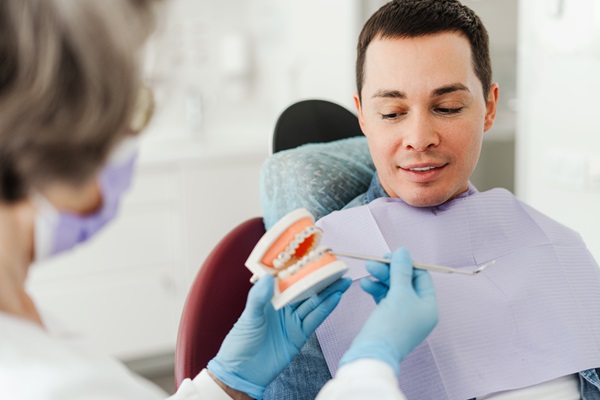The Importance of Oral Hygiene

Making excellent oral hygiene a habit is enough to avert most oral health diseases. Oral hygiene should be apart of your lifestyle and a frequent activity. A daily routine of oral care is necessary to clean the tooth of food bits or debris and plaque.
What are the consequences of poor oral hygiene?
- The primary result of poor oral care is tooth decay. When tooth decay does not receive immediate attention, it could worsen into tooth nerve infection, which causes unbearable pain. If left for long, the bones around the tooth will soon be affected, resulting in bone loss. In worse cases, you could suffer abscess, which may require the removal of the root canal or even the teeth.
- Another issue is gum disease, which can range from gingivitis and mild inflammation to severe periodontitis. If not treated early, it will cause loss of the bone surrounding the teeth, and ultimately teeth loss.
- Bad breath or halitosis is another common issue with people who have poor oral hygiene.
- Unknown to many people, poor oral hygiene is associated with diabetes, heart diseases, and complications during pregnancy. It is, therefore, necessary for people with cardiac conditions or diabetes to maintain strict oral hygiene. Couples preparing for pregnancy should also book an appointment with the dentist to resolve any possible dental issue. Maintaining proper oral health during pregnancy is necessary.
- Tooth loss in aged people makes it difficult to eat healthy meal courses, and a weak digestive system is a constraint for their overall health, causing health complications such as anemia.
- Young people without good oral hygiene may soon suffer a premature loss of teeth, degradation of the dental structure and ultimately malocclusion.
So how do we maintain good oral hygiene?
Keeping your mouth clean and healthy is simple and straightforward. Experts recommend brushing twice daily using a soft or medium toothbrush with peanut-sized toothpaste. Brushing should be gentle on the teeth and not vigorous.
Flossing should be done at least once per day.
When brushing your teeth, you should also remember to clean your palate and tongue. Doing this before going to bed will help lessen the build-up of microorganism in the mouth.
Once daily, wash your mouth with antimicrobial or mouthwash containing fluoride.
Also, don’t forget to change your toothbrush every three months.
Eat healthily, reducing the number of sugary foods and drinks. Aerated and sour beverages also do your teeth more harm than good. They erode your teeth and make it sensitive.
At least once in six months, book an appointment with the dentist for a regular checkup and professional polishing and scaling of your teeth.
Paying regular visits to your dentist when you detect any minor discomfort, discoloration, or inflammation will aid early detection of severe issues before they worsen. Your dentist will also be able to recommend precautions or practices for better oral health.
Final Note
Prevention, we know is better than cure. Simple routines like these eliminate potential oral health issues and consequently avert expensive dental procedures in the future.
Request a dental appointment here: http://www.desalvodental.com or call DeSalvo Dental at (201) 244-7658 for an appointment in our Englewood dental office.
Recent Posts
Everyone experiences bad breath from time to time, but halitosis happens to be consistent, which can cause a lot of problems for a person. However, there is hope! Halitosis treatment in Englewood is possible. Want to know what halitosis treatments are available in Englewood? We are here to help. This article highlights what treatment can…
Routine dental flossing eradicates plaque and helps prevent the accumulation of plaque, which results in tartar. The process itself can give your teeth a brighter appearance through the elimination of plaque, debris, and excess food bits that are not visible in the mirror or located in places that your toothbrush cannot reach.Dental flossing is essential…
Overstating the importance of dental health is impossible. The state of a person's mouth is directly linked to their overall well-being. The mouth is just another part of the body, so keeping it healthy promotes good health in other areas.Here are five reasons why making oral health a priority is essential:People dealing with gum disease…
Dental hygiene is best defined as a process through which preventative dental care can help maintain oral health and prevent dental emergencies. Dental hygiene involves self-responsibility with regular brushing/flossing, as well as professional care. While at-home dental hygiene is important, it is not always enough to keep dental infections and decay at bay. Here are…


